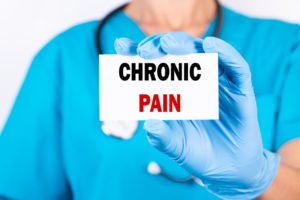Chronic pain impacts millions of Americans every day, with Wellington residents not being an exception. It interferes with their quality of life and restricts their ability to carry out regular tasks. This ongoing discomfort can result from different conditions. It may be arthritis, fibromyalgia, nerve damage, or past injuries. Those dealing with persistent pain deserve effective treatments that meet their specific needs.
This detailed guide examines the most effective methods for managing chronic pain in Wellington, Florida.
1. Managing Medications
Managing medications properly is an important part of many chronic pain treatment plans. Healthcare providers carefully check each patient’s condition before giving the right medications.
Non-Steroidal Anti-Inflammatory Drugs (NSAIDs)
NSAIDs help lower swelling, which can provide relief from chronic pain. They can be effective for the painful symptoms of conditions like arthritis or muscle strain.
Prescription Pain Medications
Prescription pain medications give stronger relief for severe chronic pain. Doctors keep a close watch on these medications to make sure they are used safely and effectively.
2. Physical Therapy and Exercise
Physical therapy is a good way to manage chronic pain. It also helps with recovery. Licensed physical therapists create custom exercise plans to make muscles stronger and improve flexibility. These specific movements help lower pain and stop future injuries.
Low-Impact Exercises
Low-impact exercises are helpful for most people with chronic pain. These activities reduce stress on joints. At the same time, they also help you become more fit. Examples of low-impact exercises are:
- Swimming
- Walking
- Gentle stretching
Regular physical activity also releases natural endorphins. This helps reduce pain in a natural way.
Specialized Physical Therapy Techniques
Special physical therapy methods are used to treat certain pain conditions effectively. Manual therapy gives quick relief to many patients. This includes massage and joint mobilization.
A physical therapist can also explain the best way to avoid pain flare-ups during everyday tasks.
3. Interventional Pain Procedures
These simple, low-risk procedures focus on relieving pain in specific areas. They deliver medication directly to the problem spot. This direct approach can be effective for pain relief.
Epidural Steroid Injections
Swelling around spinal nerves can cause back pain. Epidural steroid injections help reduce that swelling, providing major relief for back pain. The medication is placed directly where it is needed for the best results.
Nerve Blocks
Pain is transmitted through your nerves, so nerve blocks temporarily stop those signals. Doctors use these injections to figure out the source of pain and provide short-term relief. Some individuals get long-term benefits after a nerve block.
Radiofrequency Ablation (RFA)
RFA uses heat to inhibit pain signals in your nervous system. This treatment lasts longer than regular injections, with many patients feeling less pain for several months afterward.
4. Psychological Support and Counseling
Chronic pain has a strong effect on mental health and emotional well-being. Psychological support helps patients learn ways to cope and handle the stress caused by pain. Counselors who focus on chronic pain understand the specific difficulties patients experience.
Cognitive-Behavioral Therapy (CBT)
Cognitive-behavioral therapy (CBT) can help an individual reframe how they view pain. This method reduces how pain is felt and improves overall quality of life. Many patients find that combining CBT with other treatments works best.
Support Groups
Support groups bring together individuals with similar struggles. These groups offer emotional support and useful tips for managing daily life with pain.
5. Lifestyle Changes
Managing chronic pain can also be done by having healthier daily habits. These changes focus on:
- Reducing stress
- Getting better sleep
- Eating healthier
Stress Management
Stress can cause chronic pain, making management an important part of treatment. These methods help reduce pain linked to stress:
- Meditation
- Deep breathing
- Mindfulness
Patients learn to spot what causes their stress and find healthier ways to handle it.
Improving Sleep Habits
Better sleep habits can help most people with chronic pain. Poor sleep makes pain feel worse and slows healing. Healthcare providers help patients create healthy sleep routines to manage pain more effectively.
Healthy Eating
Healthy eating focuses on how food affects inflammation and pain. Anti-inflammatory diets with omega-3 fatty acids and antioxidants support the body’s healing. Many patients feel less pain after improving their diet.
6. Advanced Technology Treatments
New technology provides smart ways to manage chronic pain. These treatments use electrical stimulation to block pain signals and bring relief.
Spinal Cord Stimulation
Spinal cord stimulation uses electrical signals to stop pain messages. Doctors place small devices in the body that send controlled electrical impulses to specific nerves.
Peripheral Nerve Stimulation
Some specific nerves outside the spinal cord can cause localized pain. Peripheral nerve stimulation can help with pain that has not improved with other treatments. Many patients feel a big drop in their pain levels after this treatment.
TENS (Transcutaneous Electrical Nerve Stimulation)
TENS units provide portable pain relief by sending gentle electrical impulses through small pads placed on the skin. Patients can use these devices at home, making it easier and more convenient to manage pain.
The Best Treatments for Chronic Pain in Wellington, FL
Chronic pain does not have to take over your life. You can choose from treatments that focus on both the physical and emotional sides of pain. A good primary care physician will help you find the best methods to fit your specific needs.
The experts at Advanced Medical create custom treatment plans for chronic pain. We believe each individual is unique. The best primary care physician near you, Dr. Ishan Gunawardene, and family nurse practitioner Shariffa Gunawardene provide the best care. Their knowledge in managing chronic pain helps patients make real improvements in their daily lives. Call us at (561) 434-1935 or fill out our online appointment request form to schedule a consultation.
The best doctor in Wellington looks forward to serving you!











